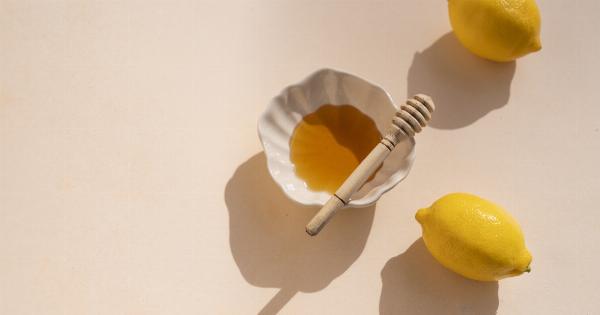Your daily shower is a relaxing ritual that refreshes your body and mind, but have you ever considered the potential toxins lurking in your shower routine? Many personal care products and even the water itself may contain harmful substances that can have long-term health effects. In this article, we will explore four common toxins found in the shower and provide tips on how to minimize your exposure.
1. Triclosan: The Antibacterial Agent
Triclosan is an antibacterial agent commonly found in soaps, body washes, and toothpaste. While it may sound beneficial, triclosan has been linked to various health concerns.
Studies have suggested that triclosan can disrupt the hormonal balance, particularly affecting thyroid function. It has also been associated with increased antibiotic resistance and environmental damage.
To avoid triclosan, opt for natural and organic soaps and toothpaste free from this harmful ingredient. Look for products with labels like “triclosan-free” or “antibacterial-free.”.
2. Parabens: The Preservatives
Parabens are a group of preservatives commonly used in shampoos, conditioners, and body lotions to extend their shelf life.
However, parabens have been known to mimic estrogen, leading to hormonal imbalances and potentially contributing to reproductive issues, breast cancer, and skin irritation.
When shopping for personal care products, choose ones labeled “paraben-free” or look for natural alternatives.
Natural preservatives like grapefruit seed extract, vitamin E, or essential oils can be equally effective without the harmful side effects.
3. Sodium Lauryl Sulfate (SLS): The Foaming Agent
Sodium Lauryl Sulfate (SLS) is a surfactant responsible for the foaming action in shampoos, body washes, and toothpaste.
While it creates the illusion of effective cleansing, SLS can strip away your skin’s natural oils, causing dryness and irritation. It can also penetrate the skin barrier and potentially interact with other chemicals to form carcinogenic byproducts.
To minimize exposure to SLS, opt for sulfate-free products. There are plenty of natural and gentle alternatives available in the market that can effectively cleanse without the harmful effects.
4. Chlorine: The Water Disinfectant
Chlorine is commonly used to disinfect tap water, killing harmful bacteria and pathogens. However, the chlorine itself can react with organic matter in the water, forming disinfection byproducts (DBPs) such as trihalomethanes (THMs) and chloramines.
These DBPs have been associated with respiratory problems, skin irritation, and even an increased risk of certain cancers.
To reduce exposure to chlorine, consider installing a shower filter that can effectively remove chlorine and its byproducts. These filters are readily available and can significantly improve the quality of your shower water.
Taking Steps Towards a Cleaner Shower Routine
Now that you are aware of these four nasty toxins in your shower routine, it’s time to take action to minimize your exposure. Here are some additional tips that can help you maintain a cleaner and healthier shower routine:.
1. Read Labels Carefully
Always read the ingredient labels of personal care products. Look for products that are free from triclosan, parabens, SLS, and other potentially harmful substances. The more natural and organic the ingredients, the better.
2. Opt for Natural Alternatives
Choose natural alternatives whenever possible. Look for products that use plant-based ingredients and natural preservatives. Consider DIY options like making your own soap or shampoo using simple and safe ingredients.
3. Use a Shower Filter
Invest in a good quality shower filter that can effectively remove chlorine and other contaminants from your water. This can greatly improve the health benefits and reduce any potential harm caused by chemical exposure.
4. Shorten Your Shower Time
While a long and steamy shower may feel luxurious, it can also increase your exposure to toxins. Limit your shower time to avoid extended contact with potentially harmful substances in the water and personal care products.
5. Ventilate Your Bathroom
Proper ventilation can help reduce the concentration of toxins in your bathroom. Use exhaust fans or open windows to allow fresh air to circulate and prevent the buildup of harmful substances.
6. Stay Informed
Keep yourself updated with the latest research and information regarding personal care product safety. Consumer awareness and demand for safer products can encourage manufacturers to create cleaner and healthier options.
By following these tips and being mindful of the toxins in your shower routine, you can significantly reduce your exposure to harmful substances.
A healthier shower routine will not only benefit your well-being but also contribute to a safer environment for all.





























